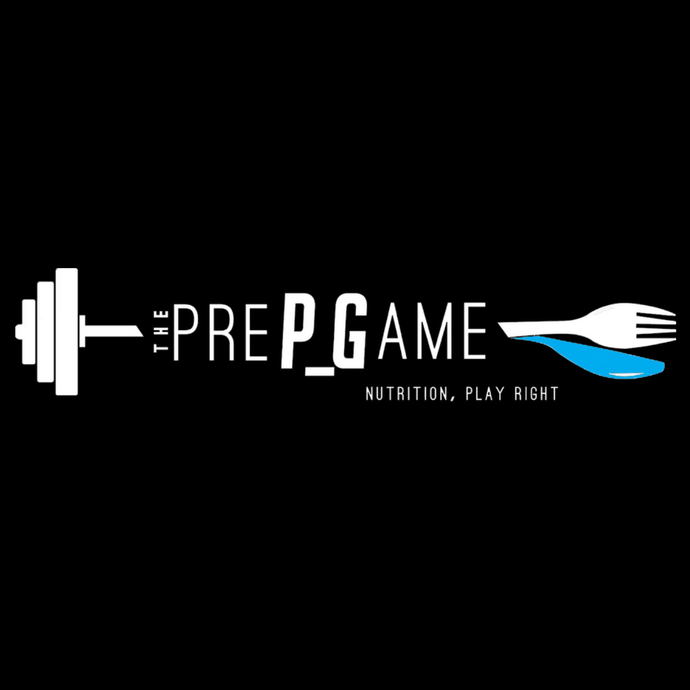Are home-made carbohydrate snacks better than gels?
Let's face it, most people eat too much sugar. Far more sugar than our bodies need for energy levels and health. But if you are an endurance athlete, your body needs carbohydrate, which ultimately breaks down to sugar. Your body needs sugar during long duration exercise to perform at its best. If you are a strength athlete you need some carbohydrate too. When it comes to performance, the key is to consume the right type of carbohydrate, at the right times and in the right amounts. Not all carbohydrates and sugars are equal, but neither are individual needs, and athletes often need a mix of sugars that will be different to someone who doesn't train. We talk about carbohydrates and sugars, but, this doesn’t mean eating a bag of lollies every day, weighed to the gram. Far from it. Not all sugars are equal and there is even more to the story if you train a lot.
WHAT IS SUGAR?
The word sugar automatically creates visions of sugar coated sweets, lolly pops and coloured sprinkles. The other images that may come to an athlete’s mind with regard to sugar are carbohydrate gels, chews and sports drinks. Sugar is everywhere, and for those of us following a largely sedentary lifestyle it is easy to eat too much. In a country where around 2/3 of the population are overweight, sugar is rarely seen in a positive light, but for athletes there are benefits.
All carbohydrate foods and drinks we consume are converted to sugars in the body. However, this does not make all carbohydrate-based foods unhealthy.
Carbohydrates are made up of chains of various sugar molecules. These chains are broken down in the body to release individual sugars, which can be used as an effective fuel by the muscles and brain. Sugar is not always nasty, and can be a valuable energy source for optimal human performance. Different types of individual sugars can be used by the body, and the right balance can be beneficial for providing the best fuel to sustain endurance efforts. Although it sounds like I am talking up the benefits of sugar, there is a time and a place for different types. Some athletes may need to tailor their carbohydrate intake around training and competition in light of other nutrition goals, while others with elevated fuel needs and revved up metabolisms may need regular carbohydrate throughout the day.
HOW MUCH SUGAR FOR ATHLETES?
If you are an athlete that burns a lot of carbohydrate, then sugar will help to fuel performance. But just because you train a lot, doesn't mean you necessarily need to carbohydrate load for every training session. Every athlete has different requirements for carbohydrate and sugars based on a range of factors including gender, body weight, body composition, training program, training phase, health status, altitude and genetics. Two people doing exactly the same training could in fact have quite different carbohydrate requirements. An athlete’s daily carbohydrate needs can be estimated based on body weight and current training, and this can be adjusted over time to accommodate other individual factors as just listed.
For exercise less than one hour duration, carbohydrate fuel requirements may be low, but there is evidence for performance benefits of a small amounts of carbohydrate during exercise due to potential central nervous system effects. As the duration of exercise increases, so too does the requirement for carbohydrate, with 60-90g/hour recommended for athletes during endurance activity (or even higher for some ultra-endurance athletes working at a high intensity, up toward 110g/hour).
I recently attended a nutrition for ultra-endurance sports symposium run by Monash University and there seems to be a wide range of carbohydrate intakes during competition and different types of training sessions. As you may expect, many individuals find it physically difficult to consume 90g/hour during exercise, and may struggle at even half of this (45g/hour). This is often due to gastrointestinal symptoms, which can be related to individual factors and the type of activity. It is easier to eat and drink riding a bike at a moderate pace compared to running at elite marathon pace for example. Some people also may simply use carbohydrate more effectively than others. For serious athletes, it may be worth seeking a laboratory that can test your individual ability to oxidise carbohydrate and to help you work out the best type and amount of carbohydrate for during exercise.
TYPES OF SUGAR
The recommendation in recent years has been for endurance athletes in events >2 hours duration with high carbohydrate needs (>60g/hour) should consume multiple transportable carbohydrate during exercise in a 2:1 glucose:fructose ratio. Fructose has a different transport system for absorption from the intestine, so adding some fructose to the glucose consumed allows a greater amount of carbohydrate to be absorbed by the body. An increasing number of people are being identified as fructose malabsorbers, and trying to increase fructose as a fuel option for exercise may be problematic in terms of gut comfort. Fructose malabsorption may be exacerbated with exercise due to increased irritation of the gut, even though there may not be any gastrointestinal symptoms day-to-day. So it comes down to looking at maximizing carbohydrate intake within individual tolerance levels and exercise needs.
NATURAL SUGARS VS REFINED
Some endurance athletes have taken an interest in ‘natural’ forms of carbohydrate and sugars as an alternative to formulated sports products eg. gels. This involves preparing home-made snacks rather than relying on commercial sports nutrition products. As per my recent blog, natural sugars are not always as innocent as they may seem, and are not necessarily healthier than refined sugar. I am all for reducing intake of processed food and additives across the board, but when it comes to athletic performance we really need to think about the type of individual sugars from a more scientific perspective. Home-made cookies, balls and cakes are terrific, and there are a range of sweet and savoury options that work well. The only problem is that many natural sugars are often high in fructose, which can cause major gut issues for long-duration exercise. Natural options are often low glycemic index, which means they may be more slowly digested….great if you are trying to lose weight and need help staying full for longer but not so great if you want food to empty rapidly from the stomach while exercising. Finding the right balance of carbohydrates takes planning, and also some trial and error. If you are set on going all natural then go for it, but if your gut is telling you ‘no’ then you may need to mix it up a bit. Pre- and post-exercise is where unrefined carbohydrates come into their own, but during exercise the focus should be on glucose vs fructose rather than natural vs processed.
DO ATHLETES REALLY NEED ALL THAT CARBOHYDRATE?
There is so much discussion about carbohydrate as a fuel, but athletes don’t need to be carbohydrate loading for every session. There are potential benefits of training with low fuel stores for selected training sessions to encourage physiological adaptations that optimize fuel systems. In reality, a competitive situation may lead to low carbohydrate stores with limited carbohydrate availability, so an improved ability to rely on fat oxidation for fuelling may be of benefit. Some athletes are following the low carb trends and there is a movement by some ultra-endurance athletes to train their bodies to use predominantly fat as a fuel, replacing gels and bars with tubes of nut butter to fuel exercise. Fat is a slow-burning fuel, so although this approach may work well for some individuals, to truly maximize endurance performance, sugar throughout will help. Numerous studies show that faster finish times for endurance athletes correlate with higher carbohydrate intake during an event– if you can use more carbohydrate you can move faster. However if your exercise is of shorter duration, you won’t need to be so aggressive with carbohydrate intake. If you are not sure how much carbohydrate you need, speak with an Accredited Sports Dietitian to tailor your intake.
WHAT ABOUT STRENGTH ATHLETES?
Strength athletes may benefit from carbohydrate prior to sessions for improved energy levels, work capacity and muscle mass gains. So it’s not just all about protein - carbohydrates and overall kilojoules are just as important. Strength-based activities don’t use the same volume of carbohydrates as endurance pursuits, therefore carbohydrate needs may be more likely to be met through meals, without the need to consume large amounts during exercise. However some athletes with very high energy requirements may benefit from taking in kilojoules, including carbohydrates, during strength sessions.
WEIGHT LOSS
Athletes trying to lose weight often reduce carbohydrates. This can be an effective strategy, but it is important to be selective about where in the day carbohydrates are reduced and by how much, with the priority to time carbohydrate for training needs to produce the best training outcomes and adaptations. There has been recent interest in ‘train-low’ and ‘sleep-low’ concepts of carbohydrate timing, which may improve fuel utilization but may also be appropriate to support body fat goals.
TEETH
Dental health is often compromised in athletes. With reduced saliva production during exercise, coupled with high sugar intake and the acidity of most sports drinks, the teeth of an athlete are constantly at risk. Dental problems are the result, so it is wise to try to reduce the contact of sugars with your teeth and try to get plenty of water rinses to reduce the risk of tooth damage.
SUMMARY
Sure, carbohydrates are beneficial for athletic performance, but this doesn’t mean you have to be on a constant carbohydrate load. The type, timing and amount will vary according to specific exercise requirements, gastrointestinal tolerance and personal preference. Choosing natural sugars is not necessarily better for during endurance activity. Work on finding the right mix for your individual needs.
Please feel welcome to subscribe to my regular newsletter, you can do so at the bottom of this page, and I am more than happy for you to share this article with others who may be interested in performance nutrition.
Further reading:
Jeukendrup, A (2011) 'Nutrition for endurance sports: marathon, triathlon, and road cycling' JSpSci
Stellingwerff, T & Cox, G (2014) 'Systematic review: carbohydrate supplementation on exercise performance or capacity of varying durations' ApplPhysNutrMetab




























